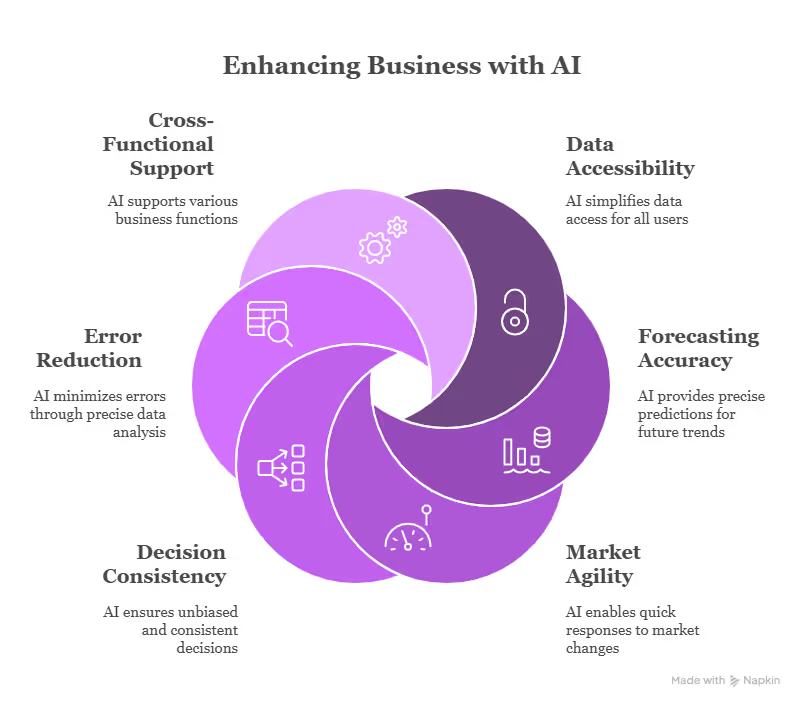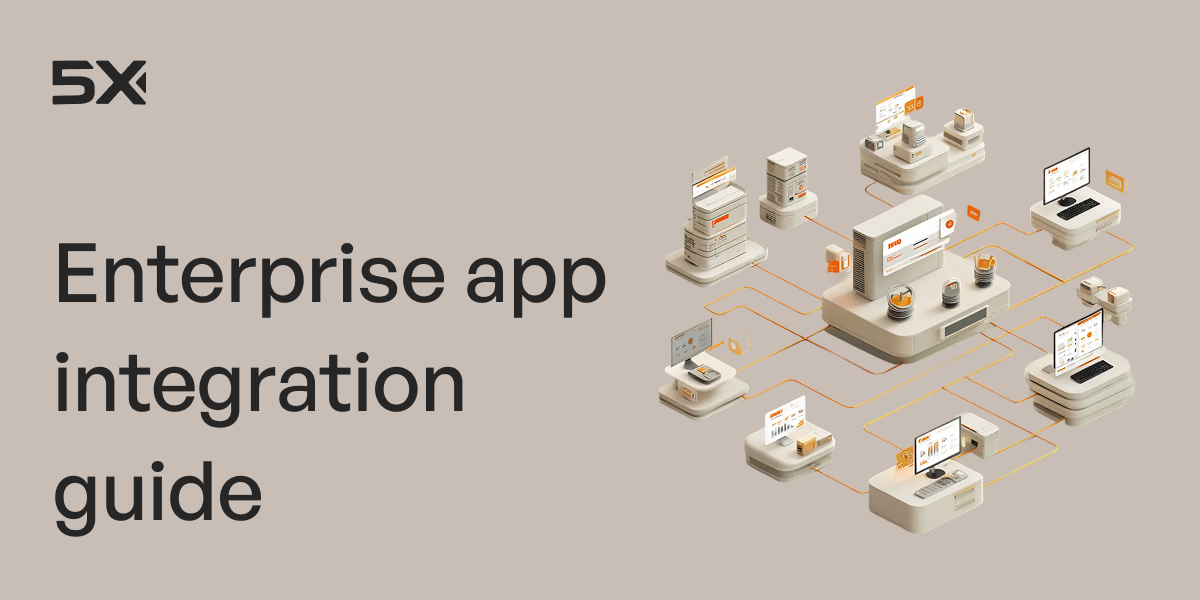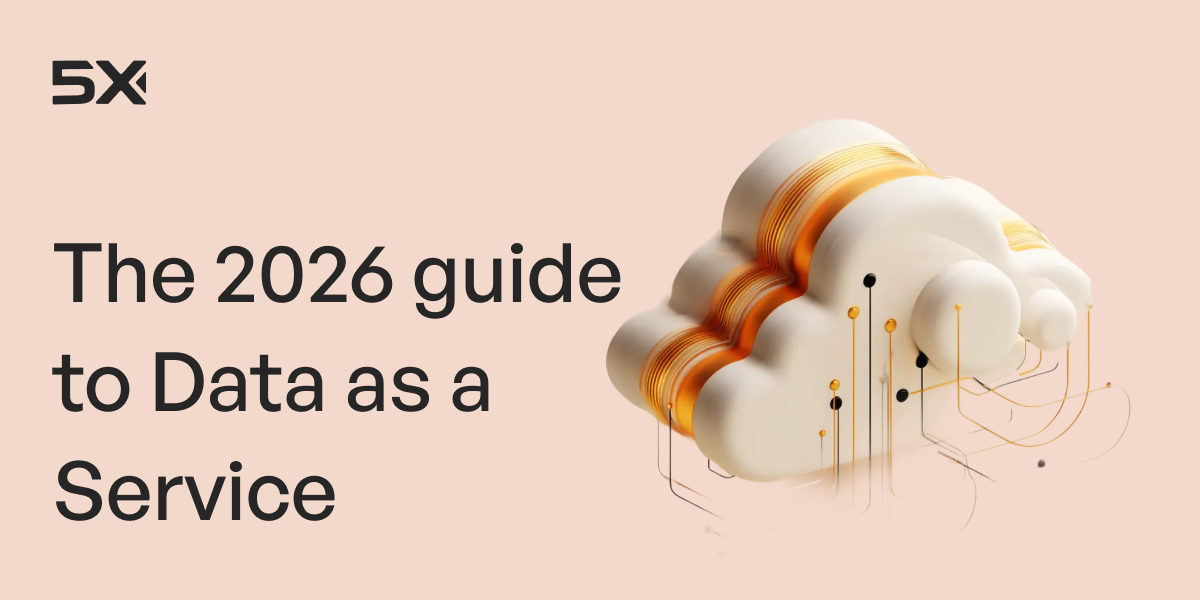Table of Contents
TL; DR
Business Intelligence (BI) is no longer just about understanding what happened. It's about knowing what’s happening now and what to do next. As businesses generate more data , the need for faster, smarter decision-making has become urgent. That’s where AI agents come in.
By combining the data-processing power of BI tools with the learning, prediction, and automation capabilities of artificial intelligence, AI agents turn static reporting BI tools into intelligent advisors.
Read this blog to explore what makes AI-powered BI different from traditional BI, the benefits AI agents bring across business functions, and steps for implementing them strategically.
AI is not just about predicting the future. It’s about unlocking new data sources such as reading PDFs, images, text, and making them accessible for business intelligence.
Tobias Suvingman, Co-founder of Rapid.AI
What is AI-powered business intelligence?
AI-powered Business Intelligence (BI) refers to the use of artificial intelligence technologies like machine learning, natural language processing (NLP), and predictive analytics, to enhance traditional BI systems. It transforms how companies collect, analyze, and act on data.
The old way of doing BI is gone.
From forecasting modules to NLP-enabled queries, AI is embedded in more BI tools. Now more than ever. Which means that companies need to adapt.
AI agents and intelligent automation are already changing the way businesses operate. They’re making data more interactive, faster to access, and easier to understand. Successful companies in this new era will integrate A with business intelligence to drive smarter decisions, faster.
Traditional vs AI-powered BI: What’s the difference?
Traditional Business Intelligence (BI) helps teams understand what happened in the past using fixed reports and dashboards. It usually needs technical skills and can be slow to update or change.
AI-powered Business Intelligence, on the other hand, is faster, smarter, and easier to use.
Here’s a quick comparison between the two:
Benefits of AI agents for business intelligence (BI)
Integrating AI into Business Intelligence (BI) is more than a technical upgrade. It changes the game for how companies think, make business decisions, and grow.
Companies using AI in their business intelligence make better decisions, faster. They invest more wisely. They create customer experiences that feel personalized and timely. All of which adds up to an edge competitors without AI simply can’t match.

Here’s an overview of advantages that AI brings to the table:
- Data access for everyone, not just data experts: AI removes the layers of complexity between business questions and data answers. It empowers teams to move faster and make decisions on their own. In the past, marketing or sales teams had to depend on data analysts to interpret dashboards or pull reports. Using NLP, anyone can simply ask a question like, “What were our top-performing campaigns last month?” and get a direct, useful answer
- Smarter forecasting, less guesswork: AI excels at spotting patterns buried in your data. From predicting customer churn to forecasting demand or revenue, AI models learn from the past to better prepare you for the future. For example, AI agents can forecast seasonal sales trends with accuracy and help a retail business stock smarter, reduce waste, and increase profits without relying on instinct or outdated reports
- Faster reactions to market shifts: Using AI-powered BI, you can monitor real-time data across channels and flag any unusual activity like a sudden drop in engagement or a spike in traffic. Having this insight at your disposal helps you act quickly. Moreover, this kind of agility is crucial in fast-moving industries, where timing often defines success
- More consistent, less biased decisions: AI processes data the same way every time, delivering consistent, unbiased, and evidence-based recommendations. AI also removes ambiguity from dashboards. Instead of "Here’s the data," you get, "Here’s what the data means and what to do next”
- Fewer mistakes, greater precision: Even seasoned analysts can miscalculate. Thankfully, AI operates with precision at scale, flagging anomalies, validating trends, and cross-verifying results across datasets. When implemented properly, it helps reduce costly human errors
- Support for every business function: AI isn’t just for the data team. It helps operations run smoother, customers get better service, HR optimize hiring, and marketing fine-tune campaigns. It’s a versatile ally, not a one-department tool
Artificial Intelligence (AI) and Business Intelligence (BI) are two distinct but complementary fields that, when combined, can significantly enhance data analysis, decision-making, and overall business performance.
- Pratibha Kumari Jha, Chief Digital Officer, DataThick
Challenges of implementing AI agents to BI
Bringing AI into your business intelligence workflow changes how people work, think, and make decisions. And that kind of change doesn’t happen overnight.
Here are some common roadblocks that companies might face:
- Legacy systems don’t play well with AI: Many organizations still rely on outdated infrastructure that wasn’t built for AI tools, making integration complex and time-consuming
- Privacy laws are getting stricter: As governments tighten data regulations, businesses must ensure that their AI systems are compliant, adding another complexity to implementation
- Talent gap: You need people who understand both AI and business intelligence. Finding those hybrid skill sets is a challenge, especially when AI expertise is in high demand
- Leaders are hesitant to fix what doesn’t seem broken: If existing BI tools are “good enough,” it can be hard to justify a disruptive overhaul, especially without a clear short-term ROI
- Change is uncomfortable: AI doesn’t just add new capabilities – it changes workflows, roles, and even team dynamics. Not everyone’s ready for that kind of shift.
At 5X, we get that adopting AI isn’t a plug-and-play process. That’s why we offer tools and tailored guidance. We help you navigate both the technical hurdles and the human side of change.
Strategic implementation of AI in business intelligence

Bringing AI into your Business Intelligence (BI) setup isn’t just about plugging in a tool. It takes planning, making the right choices, and establishing a strong data foundation.
Here’s a step-by-step guide to doing it right:
1. Start with clear goals
On the business case of using AI in business intelligence, Tobias Suvingman, Co-founder of Rapid.AI, offers practical advice for companies looking to adopt AI in their BI stack
“Start where the business feels either comfortable or in pain and tie AI initiatives directly to business outcomes, not just technical possibilities,” he shares.
Before diving in, ask yourself:
- What problem are you trying to solve? Identify if it’s for faster reporting, better forecasting, or smarter decisions?
- Which departments (like marketing or sales) will benefit from this change?
- What kind of data do you have and can AI help you make sense of it?
- Do you need to upgrade your existing BI tools or start fresh?
- How does this support your bigger business goals like growing revenue or reducing costs?
- What does success look like, and how will you measure it?
2. Pick the right AI tools
Not every AI tool is right for every business.
Look for solutions that match your specific needs. Shortlist tools that support natural language queries, generate predictive insights, or offer easy-to-use dashboards.
3. Make sure your data is clean
AI needs high-quality data to work well. That means regularly cleaning and organizing your data—so the insights it delivers are accurate and useful.
4. Ensure smooth integration
Your AI tools should work well with the systems and tools you already use. Sometimes this will need help from tech teams to make sure everything runs smoothly without major disruption.
5. Train your teams
AI can seem intimidating. Ease the transition with training that shows how AI helps, not replaces human decision-making. Make sure tools are user-friendly and people feel confident using them.
6. Tackle common concerns
When implementing AI agents in BI, it's essential to address common concerns early. One of the biggest fears is, "Will it replace our jobs?" The answer is no—AI agents are designed to support better decision-making by providing timely, useful insights, not to replace human expertise.
Another concern is complexity. Teams may worry that the tools will be too difficult to use. That’s why you must select AI solutions with intuitive interfaces and offer hands-on training to build confidence.
Lastly, skepticism around accuracy is common, so build trust by running small-scale pilot projects that clearly show how reliable and valuable the insights can be before rolling them out more broadly.
7. Monitor and improve over time
AI isn’t a “set it and forget it.” Track how well it's performing, gather feedback, and keep improving the system. The more you refine it, the more value you’ll get.
Industry use cases of AI agents in business intelligence
From marketing and product teams to C-suites and compliance officers, AI-powered BI agents are automating insights, flagging risks, and recommending actions across departments.
Here are the top 5 industry use cases of AI agents in business intelligence:
1. Customer service and support: From feedback to forecasting
AI agents in BI aren’t just handling customer queries—they’re analyzing customer support data to improve service strategy. They summarize sentiment trends from tickets, detect spikes in complaint categories, and suggest optimizations in support workflows.
Example: AI agents analyze support tickets and reveal why delivery issues spike after long weekends. It recommends logistics adjustments and notifies customer service leads before the next holiday.
2. Sales and CRM: Turning data into deal intelligence
AI agents bring predictive power to CRM and sales BI. Instead of just logging data, they surface hidden patterns—like which lead sources close fastest, or which reps are falling behind. They also forecast pipeline health and suggest actions to prevent deal slippage.
Example: An AI agent detects a drop in conversion rate from a particular campaign, identifies messaging inconsistencies, and suggests A/B testing a revised email flow.
3. Human resources and recruitment: Smarter talent strategy with data
In HR, AI agents analyze workforce data to identify trends in turnover, performance, and hiring funnels. They automate headcount reports, flag attrition risks, and help HR make evidence-based decisions about hiring and retention.
Example: An AI agent alerts HR when churn risk spikes in one department, surfaces historical exit trends, and suggests pulse surveys to investigate morale.
4. Personalized marketing: Precision at scale
Marketing teams use AI agents in BI to understand which channels, messages, and customer segments drive ROI. These agents deliver real-time performance summaries, forecast campaign impact, and recommend spend reallocation based on shifting behavior.
Example: When a marketer asks, “Which creative drove the highest return in Q2?”, the AI agent responds with a performance dashboard, identifies the top variant, and recommends doubling spend on that channel.
5. Financial services
Financial firms use AI agents to monitor data across departments for fraud detection and forecasting customer lifetime value. These agents flag unusual patterns, generate compliance summaries, and assist in strategic planning with real-time BI alerts.
Example: An AI agent spots a drop in loan approval rates. It investigates applicant data, attributes the decline to a stricter credit score filter, and recommends adjusting thresholds for qualified leads.
Connected data prepares AI for business intelligence
As AI agents begin to redefine what’s possible in business intelligence, deploying a chatbot on top of your data is no longer enough.
Success depends on the quality, readiness, and structure of your data. That’s where 5X comes in.
As the AI-ready data platform, 5X ensures your BI agents are functional and truly intelligent. It unifies fragmented data and enables context-aware responses and predictive insights to provide the foundation and infrastructure you need for agentic analytics to thrive.
Whether your organization is just getting started or you’re ready for autonomous decision support, 5X helps you scale from natural language Q&A to fully integrated, real-time AI agents that can understand, act, and accelerate business growth.
FAQs
What are the 5 types of AI agents?

What are the four main rules for an AI agent?

How can AI be used in business intelligence?

How to use AI agents in business?

Building a data platform doesn’t have to be hectic. Spending over four months and 20% dev time just to set up your data platform is ridiculous. Make 5X your data partner with faster setups, lower upfront costs, and 0% dev time. Let your data engineering team focus on actioning insights, not building infrastructure ;)
Book a free consultationHere are some next steps you can take:
- Want to see it in action? Request a free demo.
- Want more guidance on using Preset via 5X? Explore our Help Docs.
- Ready to consolidate your data pipeline? Chat with us now.

How retail leaders unlock hidden profits and 10% margins
Retailers are sitting on untapped profit opportunities—through pricing, inventory, and procurement. Find out how to uncover these hidden gains in our free webinar.
Save your spot









%201.svg)


.png)






